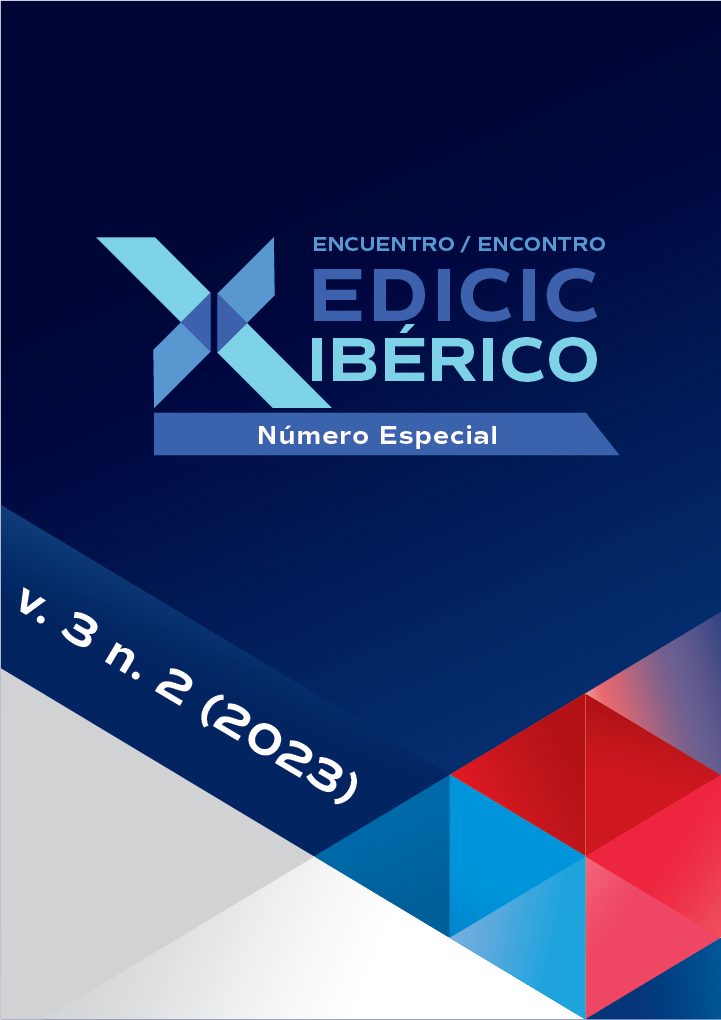Control indicators to improve data collection and the data and statistics system of public libraries in Spain
DOI:
https://doi.org/10.62758/re.v3i2.253Keywords:
Public Libraries, Data, Statistics, Indicators, Library EvaluationAbstract
The purpose of this paper is to present 5 control indicators to improve the data and the statistics system of public libraries of Spain. The indicators are referred to the budget for the staff, to the organized cultural activities and attendees, and to the registered users and active borrowers. With the presentation and calculation of the indicators at the level of municipalities in Spain for the year 2021, we detect and comment on (possible) errors in the data. From there, we discuss possible ways for the improvement in three ways: actions that can be carried out by and from the libraries, from the data and statistics system of public libraries in Spain, and actions for the researchers on this topic. The value and originality of the work lies in the fact that the control indicators developed are original, without their calculation and proposal being known in previous works, and that they are calculated at the level of municipalities and not at the level of provinces and/or autonomous communities as is usually done. In addition, the main purpose is to improve the data so that they allow us to know in a real and solid way what is happening on a daily basis in the libraries.
References
Arroyo Ortega, Oscar (2021). Universalizar los servicios bibliotecarios públicos en España: Informe FESABID, FESABID, ISBN 978-84-939694-4-8. https://pedrolr.es/yourls/vgmoc.
Arroyo-Vázquez, N., Hernández-Sánchez, H., & Gómez-Hernández, J.-A. (2019). Las bibliotecas públicas españolas. Actualización del Informe Fesabid. Anuario ThinkEPI, 13. https://doi.org/10.3145/thinkepi.2019.e13inf03. DOI: https://doi.org/10.3145/thinkepi.2019.e13inf03
Carrión-Gútiez, A. (2013). Informe de situación de las bibliotecas públicas españolas en 2012. Profesional de la información, 22(3), 250–258. https://doi.org/10.3145/epi.2013.may.09. DOI: https://doi.org/10.3145/epi.2013.may.09
Lázaro-Rodríguez, P. (2022). A vueltas con los datos: ¿inconsistencias en las estadísticas de bibliotecas públicas de España 2019? Recomendaciones para la mejora. OSF Preprints. https://doi.org/10.31219/osf.io/8a9dq. DOI: https://doi.org/10.31219/osf.io/8a9dq
Lázaro-Rodríguez, P., & Aguilar-Soto, M. (2023). Datos e Indicadores Lázaro-Rodríguez y Aguilar-Soto para el trabajo «Indicadores de control para mejorar la toma de datos y el sistema de datos y estadísticas de las bibliotecas públicas de España». (2023). https://osf.io/download/8r76z/. DOI: https://doi.org/10.31219/osf.io/8bjpk
Lázaro-Rodríguez, P., López-Gijón, J., Alonso, S., Martínez-Sánchez, M.-Á., & Herrera-Viedma, E. (2018). Secaba-Rank, herramienta online para analizar y evaluar bibliotecas. Profesional de la información, 27(2), 278-288. https://doi.org/10.3145/epi.2018.mar.06. DOI: https://doi.org/10.3145/epi.2018.mar.06
Lázaro-Rodríguez, P., López-Gijón, J., Alonso, S., & Herrera-Viedma, E. (2020). Actualidad en estudios LibQUAL+®: Paradigmas de la biblioteca informativa y social-creadora y cuestión de género como reflejos de la realidad social. Revista Española de Documentación Científica, 43(2), e264. https://doi.org/10.3989/redc.2020.2.1649. DOI: https://doi.org/10.3989/redc.2020.2.1649
Lázaro-Rodríguez, P., López-Gijón, J., & Herrera-Viedma, E. (2019). Secaba-Rank a examen: Validación de su metodología sobre eficiencia en bibliotecas versus la técnica Data Envelopment Analysis (DEA) y el método Finlandia. Profesional de la información, 28(3), e280316. https://doi.org/10.3145/epi.2019.may.16. DOI: https://doi.org/10.3145/epi.2019.may.16
Lázaro-Rodríguez, P., & Vakkari, P. (2018). Modelizando el uso de las bibliotecas públicas a través de sus características: Estudio comparativo entre España y Finlandia para los préstamos y las visitas. Revista Española de Documentación Científica, 41(4), e216. https://doi.org/10.3989/redc.2018.4.1544. DOI: https://doi.org/10.3989/redc.2018.4.1544
López Gijón, J. (1997). Desde los datos, hacia los modelos. Educación y biblioteca, 9(78), 44-49. http://hdl.handle.net/10366/113392.
MCD (2023a). Bibliotecas públicas españolas en cifras. https://pedrolr.es/yourls/zz3la
MCD (2023b). Bibliotecas públicas españolas en cifras. Evolución - Personas empleadas - País Vasco - Gipuzkoa. https://pedrolr.es/yourls/hk0z5.
MCD (2023c). Bibliotecas públicas españolas en cifras. Evolución - Gastos corrientes por tipo de gasto - País Vasco - Gipuzkoa. https://pedrolr.es/yourls/rg26y.
MCD (2023d). Bibliotecas públicas españolas en cifras - Principales indicadores 2021. https://pedrolr.es/yourls/xhh17.
MCD (2023e). Bibliotecas públicas españolas en cifras Gastos corrientes. 2021. Canarias - Palmas de Gran Canaria. https://pedrolr.es/yourls/t635r.
Sánchez-Muñoz, E. (2022). Condicionantes en la consolidación de los servicios de préstamo de libro electrónico en las bibliotecas públicas. Profesional de la información, 31(2), e310206. https://doi.org/10.3145/epi.2022.mar.06. DOI: https://doi.org/10.3145/epi.2022.mar.06
Villoldo Gómez, F. J., Hernández Sánchez, H., & Arroyo Vázquez, N. (2011). Bibliotecas y crisis económica (II). Las bibliotecas públicas en 2010: El desarrollo de la última década, en peligro. Boletín de la Asociación Andaluza de Bibliotecarios, 26(102), 187-191. https://pedrolr.es/yourls/fnba8.
Downloads
Published
How to Cite
Issue
Section
License
Copyright (c) 2023 Revista EDICIC

This work is licensed under a Creative Commons Attribution 4.0 International License.
The Association holds the copyright of the texts it publishes and, therefore, adopts a Creative Commons License, CC BY 4.0 DEED Attribution 4.0 International (https://creativecommons.org/
You are free to:
- Share: copy and redistribute the material in any medium or format for any purpose, even commercially.
- Adapt: remix, transform, and build upon the material for any purpose, even commercially.






